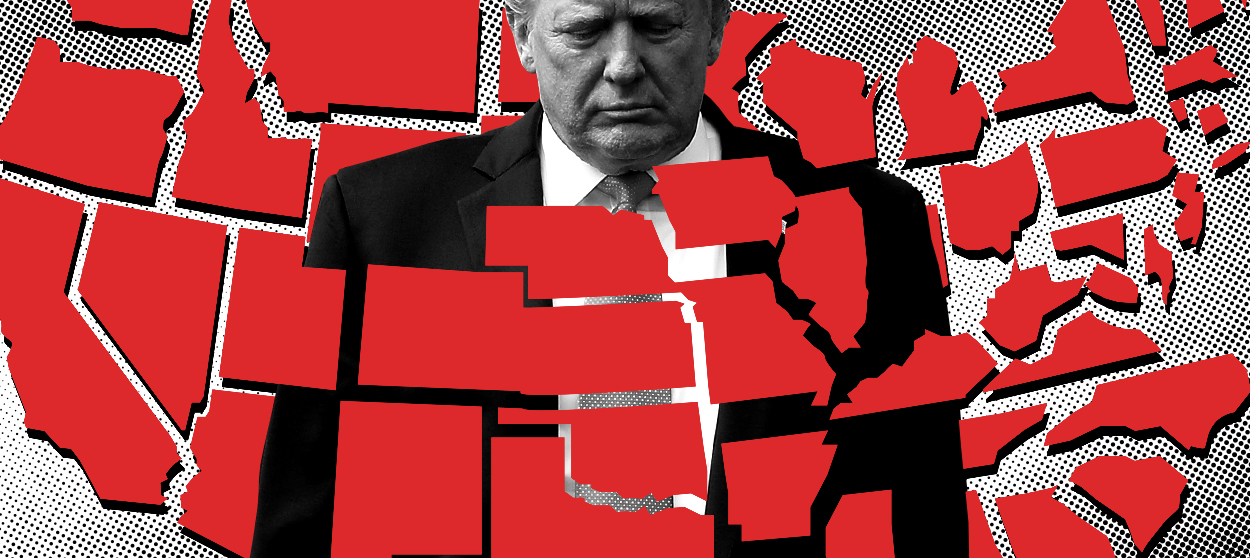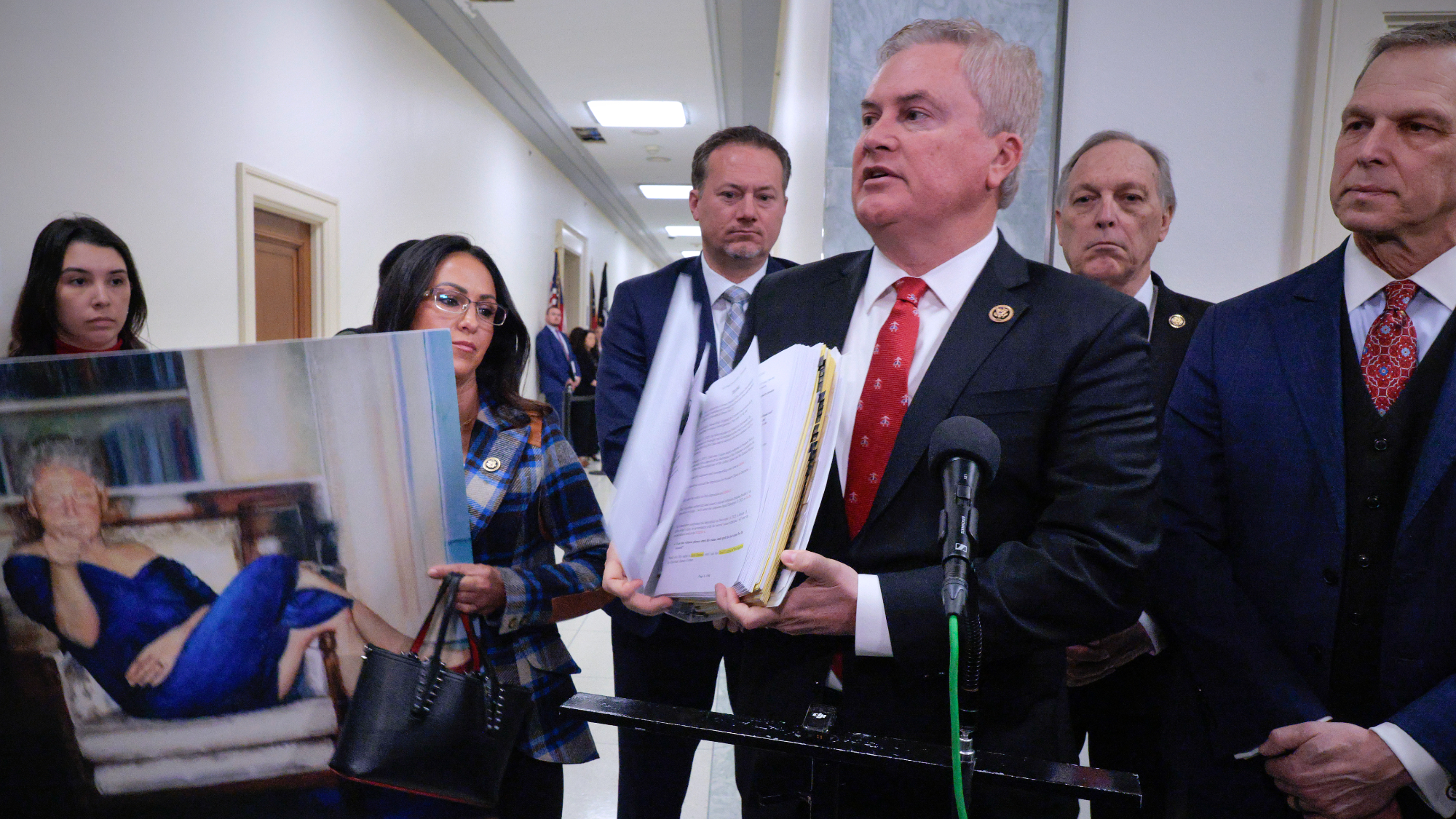Is Trump going to repeat Hillary's big mistake?
His re-election campaign wants to play everywhere. Big mistake.


A free daily email with the biggest news stories of the day – and the best features from TheWeek.com
You are now subscribed
Your newsletter sign-up was successful
The 2020 presidential election is Donald Trump's to lose. He has all the built-in advantages of any incumbent, but he is still vulnerable to the right Democratic challenger. His obsession with relitigating the pre-history of the special counsel's investigation is understandable and probably justified, but it will do him no favors with the crucial 100,000 or so voters, many of them Democrats, who pushed him to victory two and a half years ago in Wisconsin, Michigan, and Pennsylvania. The fact that manufacturing jobs, especially in the auto industry, have continued to disappear in the former two states despite his frequently repeated pledges to prevent this is not helping either.
I wonder whether Trump's campaign recognizes this and is already trying to compensate for possible losses in the Midwest by seeking victories elsewhere. This is the only sense I was able to make of comments made by his campaign manager, Brad Parscale, in a recent interview on Face the Nation. According to Parscale, the president's re-election campaign is interested in trying to flip not only Nevada and New Mexico, both of which last went Republican in 2004, but also New Hampshire and Minnesota, which has not given its electoral votes to a Republican since the Nixon landslide of 1972. There are Americans who cast their first votes in that election who are now 70 years old.
This is, to put it bluntly, idiotic. It would, among other things, repeat a crucial mistake made by Hillary Clinton's team in 2016, when she concentrated on flipping Georgia and Texas while ignoring the blue and purple-state voters who eventually defected to Trump. Her losses in Pennsylvania, Michigan, and Wisconsin decided the election. Even if she had managed to win Georgia, she would have lost by 45 electoral votes if Trump had still taken all three of the former states. Texas would have shifted the balance, but how likely was this to happen? Every four or so years Democrats convince themselves that some new cult media personality — Wendy Davis, Robert Francis O'Rourke — will be the one to “turn Texas blue.” Somehow it never pans out, even when the state's Republican junior senator is one of the most reviled politicians in America. (When I last attempted to revisit the 2016 campaign at the website 270towin.com, I was not even allowed to make Texas blue on my interactive map: Sometimes glitches have instructive things to say about the fabric of reality.)
The Week
Escape your echo chamber. Get the facts behind the news, plus analysis from multiple perspectives.

Sign up for The Week's Free Newsletters
From our morning news briefing to a weekly Good News Newsletter, get the best of The Week delivered directly to your inbox.
From our morning news briefing to a weekly Good News Newsletter, get the best of The Week delivered directly to your inbox.
If Trump attempted to win 2020 without the post-industrial Midwest it would be even more foolish than Clinton's quixotic attempts to pull Texas away from the GOP. At least the Lone Star State is worth a commanding 36 electoral votes — the reward, however unlikely, would have been enormous. In Trump's case flipping the four states singled out by his campaign manager would yield a combined 19 electoral votes — less than Pennsylvania's 20 and only three more than Michigan's 16.
Attempting to expand a candidate's electoral map is not a zero-sum game — at least in theory. But what campaign strategy would make it possible for Trump to win over new voters in the Southwest, the Upper Midwest, and the Northeast at the same time all while holding on to Pennsylvania and the Great Lakes? It is easy to imagine the president and his advisers thinking that there are votes to be had in the Southwest by leaning aggressively into his immigration record. Perhaps there are. But this strategy would almost certainly hurt his chances in, say, Minnesota. Using optimistic language about the economy that might appeal to voters in a state like Nevada — or even Colorado — would alienate Midwesterners, toward whom his best pitch in 2020 is to insist that Democrats have prevented him from carrying out his recovery program. Trump can argue that we are still in the middle of "American carnage," or he can insist that he has already made America great again and deserves to be rewarded for it — not both.
Trump's path to victory was always a narrow one. Even those of us who expected him to win in 2016 recognized that it depended on some very tight math working out just right — and on the inability of Hillary Clinton to endear herself to otherwise reliable Democratic voters. There is no reason to think that it will be any different four years later — except that this time his opponent might end up being someone like Bernie Sanders or Joe Biden, both of whom would be more appealing to the thousands of voters in a handful of states who made all the difference in 2016. Trump's dubious record on manufacturing jobs, his lack of interest in labor issues, his refusal to honor his promises concerning the safety net, his atavasitic resentments — all of these things will have to be explained somehow.
Figuring out how seems to me a better use of his and his campaign's limited financial and logistical resources than trying to turn New Hampshire or Minnesota into the next Alabama.
A free daily email with the biggest news stories of the day – and the best features from TheWeek.com
Matthew Walther is a national correspondent at The Week. His work has also appeared in First Things, The Spectator of London, The Catholic Herald, National Review, and other publications. He is currently writing a biography of the Rev. Montague Summers. He is also a Robert Novak Journalism Fellow.
-
 Can Europe regain its digital sovereignty?
Can Europe regain its digital sovereignty?Today’s Big Question EU is trying to reduce reliance on US Big Tech and cloud computing in face of hostile Donald Trump, but lack of comparable alternatives remains a worry
-
 The Mandelson files: Labour Svengali’s parting gift to Starmer
The Mandelson files: Labour Svengali’s parting gift to StarmerThe Explainer Texts and emails about Mandelson’s appointment as US ambassador could fuel biggest political scandal ‘for a generation’
-
 Magazine printables - February 13, 2026
Magazine printables - February 13, 2026Puzzle and Quizzes Magazine printables - February 13, 2026
-
 Clintons defy House GOP on Epstein subpoenas
Clintons defy House GOP on Epstein subpoenasSpeed Read The House has already received what ‘little information we have,’ the Clintons said
-
 The billionaires’ wealth tax: a catastrophe for California?
The billionaires’ wealth tax: a catastrophe for California?Talking Point Peter Thiel and Larry Page preparing to change state residency
-
 Bari Weiss’ ‘60 Minutes’ scandal is about more than one report
Bari Weiss’ ‘60 Minutes’ scandal is about more than one reportIN THE SPOTLIGHT By blocking an approved segment on a controversial prison holding US deportees in El Salvador, the editor-in-chief of CBS News has become the main story
-
 Has Zohran Mamdani shown the Democrats how to win again?
Has Zohran Mamdani shown the Democrats how to win again?Today’s Big Question New York City mayoral election touted as victory for left-wing populists but moderate centrist wins elsewhere present more complex path for Democratic Party
-
 Millions turn out for anti-Trump ‘No Kings’ rallies
Millions turn out for anti-Trump ‘No Kings’ ralliesSpeed Read An estimated 7 million people participated, 2 million more than at the first ‘No Kings’ protest in June
-
 Ghislaine Maxwell: angling for a Trump pardon
Ghislaine Maxwell: angling for a Trump pardonTalking Point Convicted sex trafficker's testimony could shed new light on president's links to Jeffrey Epstein
-
 The last words and final moments of 40 presidents
The last words and final moments of 40 presidentsThe Explainer Some are eloquent quotes worthy of the holders of the highest office in the nation, and others... aren't
-
 The JFK files: the truth at last?
The JFK files: the truth at last?In The Spotlight More than 64,000 previously classified documents relating the 1963 assassination of John F. Kennedy have been released by the Trump administration
